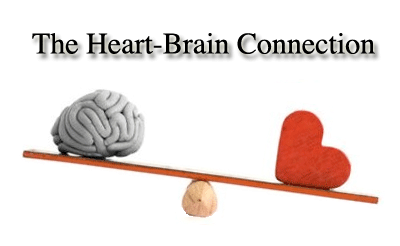- Home
- Editorial
- News
- Practice Guidelines
- Anesthesiology Guidelines
- Cancer Guidelines
- Cardiac Sciences Guidelines
- Critical Care Guidelines
- Dentistry Guidelines
- Dermatology Guidelines
- Diabetes and Endo Guidelines
- Diagnostics Guidelines
- ENT Guidelines
- Featured Practice Guidelines
- Gastroenterology Guidelines
- Geriatrics Guidelines
- Medicine Guidelines
- Nephrology Guidelines
- Neurosciences Guidelines
- Obs and Gynae Guidelines
- Ophthalmology Guidelines
- Orthopaedics Guidelines
- Paediatrics Guidelines
- Psychiatry Guidelines
- Pulmonology Guidelines
- Radiology Guidelines
- Surgery Guidelines
- Urology Guidelines
The Heart-Brain Connection: The Link between LQTS and Seizures

Researchers at the University of Rochester Medical Center recently discovered a genetic link between Long QT Syndrome (LQTS), a rare cardiac rhythm disease, and an increased risk for seizures. The study also found that people with LQTS who experience seizures are at greater risk of sudden cardiac death.
According to research published in the July, 2016, issue of Neurology®, the medical journal of the American Academy of Neurology, there is a clear association between the heart and the brain of LQTS patients. Patients carrying LQTS genetic mutations were three times more likely to have experienced seizures in their past, compared to their family members who did not carry those mutations. Interestingly, LQTS patients who had a history of seizures also tended to have worse cardiac symptoms.
David Auerbach, Ph.D., senior instructor of Medicine in the Aab Cardiovascular Research Institute of the University of Rochester Medical Center, and lead author of the study found seizure status to be the strongest predictor of cardiac arrhythmias the abnormal heart rhythms characteristic of LQTS. In fact, about 20% of the LQTS patients in the study who had a history of seizures had survived at least one lethal cardiac arrhythmia.
Auerbach's study set a new clinical precedence for the link between seizures and LQTS and provides a case for doctors to pay more attention to what is happening in LQTS patients' brains or, more broadly, to "look outside the classic organ of interest" in any disease.
As a postdoctoral fellow, Auerbach studied the heart-brain connection in a severe genetic form of epilepsy, and found that cardiac arrhythmias were one cause of sudden unexplained death in people with epilepsy. Now, he investigates the converse whether a genetic heart disorder is also associated with issues in the brain.
With funding from the University of Rochester Clinical and Translational Science Institute, Auerbach tapped into the Rochester-based LQTS Patient Registry to answer this question. This unique resource was developed 40 years ago by the senior author of the study, Arthur Moss, M.D., the Bradford C. Berk, MD, PhD, Distinguished Professor of Medicine at URMC. The registry contains information about more than 18,000 people including LQTS patients and their affected and unaffected family members, who provide a nearly ideal group of controls. "In essence, they have the same genetic makeup, except theoretically, the LQTS-causing mutation," says Auerbach.
To ensure that the seizures reported in the registry were not merely misdiagnosed cardiac arrhythmias, Auerbach investigated the effect of beta blockers, drugs often prescribed to LQTS patients to prevent cardiac arrhythmias. While the drugs effectively reduced patients' arrhythmias, they had no effect on seizures, minimizing the chance that the seizures were simply misdiagnosed cardiac side effects.
Looking at the patients' genetic information, Auerbach and his colleagues found that patients with the three different types of LQTS (LQTS1-3) showed similar heart rhythm symptoms, but vastly different prevalence of seizures. LQTS1 and LQTS2 patients had much higher prevalence of seizures than LQTS3 or no mutation with LQTS2 at the greatest risk.
Further investigation of the LQTS-causing mutation showed that the specific location of the mutation greatly affected the risk of cardiac arrhythmias and seizures. In one location on the gene, the mutation protected against these symptoms, but in another location on the same gene, the mutation increased the risk of those symptoms. Understanding what each of these mutations does may shed new light on a basic mechanism of seizures and may provide viable therapeutic targets to treat LQTS.
Auerbach says there is still a lot more work to do, but believes, "you could begin applying these findings to patients today by telling physicians treating LQTS patients to look outside the heart."

Disclaimer: This site is primarily intended for healthcare professionals. Any content/information on this website does not replace the advice of medical and/or health professionals and should not be construed as medical/diagnostic advice/endorsement or prescription. Use of this site is subject to our terms of use, privacy policy, advertisement policy. © 2020 Minerva Medical Treatment Pvt Ltd